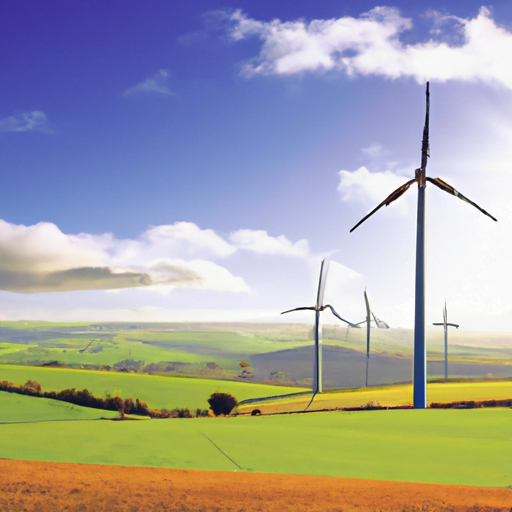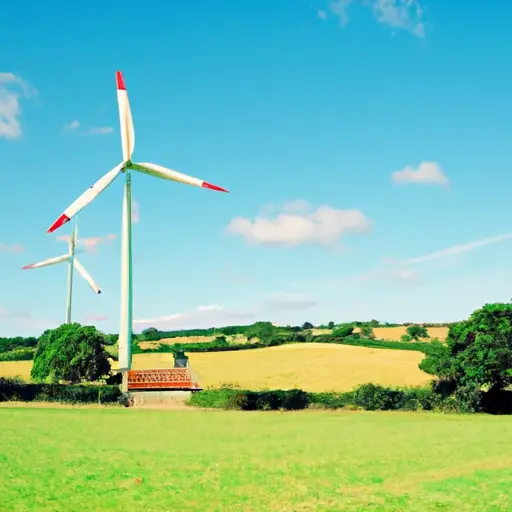Have you ever dreamt of living off the grid, away from the hustle and bustle of city life? Imagining yourself surrounded by nature, with no reliance on public utilities and services. It might be a tempting idea, but is it actually possible to buy land and settle in the UK for an off-grid lifestyle?
Living off the grid means relying on self-sustainability for basic needs such as energy, water, and food. It offers a sense of freedom and independence that many people crave. If you desire to embrace this lifestyle in the UK, you’ll likely be pleased to know that it is indeed possible to buy land and live on it. However, there are certain considerations and regulations that you need to be aware of.
In the UK, purchasing land for an off-grid lifestyle is subject to various legal and planning requirements. One important factor is the classification of the land. If you wish to build a permanent structure, you will need to ensure that the land has the appropriate designation, such as residential or agricultural. Planning permission may also be necessary, especially if you plan to construct a house or other permanent buildings. Additionally, it’s important to consider access to services such as water supply and waste disposal.
In the upcoming article, we will delve into the topic of off-grid living in the UK in more detail. We’ll explore the legalities and practicalities of buying land and settling into an off-grid lifestyle. By the end, you’ll have a better understanding of what it truly means to live off the grid in the UK and whether it’s a feasible option for you. So, stay tuned and let’s uncover the possibilities of embracing a self-sustainable and independent life in the beautiful British countryside.

Living Off the Grid: Can I Buy Land and Settle in the UK?
Overview of Off Grid Living in the UK
Living off the grid, a self-sustainable lifestyle that disconnects from public utilities and relies on alternative sources of energy, has gained significant popularity in recent years. With concerns about climate change and a desire for more sustainable living, many individuals are considering the possibility of buying land and settling off the grid in the UK. However, before embarking on this adventure, it is important to understand the legalities, restrictions, and regulations involved.
Understanding the Legalities of Buying Land in the UK
In the UK, land is generally categorized into specific uses such as residential, agricultural, or commercial. When it comes to living off the grid, it is essential to understand the legalities involved in buying land for such purposes. Generally, residential land is the most suitable option for off-grid living, as it allows for the construction of a dwelling for personal use. However, it is important to note that not all residential land can be used for off-grid living, as some areas have specific zoning regulations in place.
Restrictions and Regulations for Living Off the Grid in the UK
While off-grid living is becoming increasingly popular, there are still restrictions and regulations that need to be considered. One of the main challenges is obtaining planning permission for a self-built property. Local authorities have specific rules regarding the construction of dwellings, and it is crucial to understand and comply with these regulations. Failure to do so may result in fines or even the demolition of the property.
Another factor to consider is the availability of essential services such as water, sewage disposal, and electricity. In some areas, accessing these services without being connected to the grid can be challenging or even impossible. Therefore, it is important to research and plan accordingly, ensuring that you have a sustainable solution for these essential utilities.
Exploring the Options: Buying Land vs. Renting Land
When it comes to off-grid living, individuals have the option to either buy or rent land. Buying land provides long-term stability and allows for more freedom in terms of property development and customization. However, it also requires a significant financial investment and the responsibility of property maintenance.
On the other hand, renting land offers flexibility and lower initial costs. Renting land allows individuals to test and explore the off-grid lifestyle without the commitment of property ownership. However, it is essential to carefully review rental agreements and ensure that the landowner supports off-grid living and is willing to accommodate your specific needs.
Factors to Consider Before Settling Off the Grid in the UK
Before making the decision to settle off the grid in the UK, there are several factors to consider. Firstly, one must assess their personal preferences and priorities. Living off the grid requires a certain level of self-sufficiency and adaptability. It is important to determine if this lifestyle aligns with your values and if you are prepared to put in the necessary effort to make it work.
Additionally, the availability of resources is a crucial consideration. Researching the potential off-grid areas and understanding the local climate, accessibility to essential services, and availability of natural resources such as water and sunlight is vital. You must also determine if you have the necessary skills or are willing to acquire the knowledge required for off-grid living, such as renewable energy generation and sustainable farming practices.
Finding Suitable Land: Researching and Locating Potential Off Grid Areas
Finding suitable land for off-grid living requires thorough research and careful consideration. Various online platforms and real estate agents specialize in rural properties and can help you identify potential off-grid areas. It is important to visit and explore the locations in person to get a better understanding of the area and its suitability for your lifestyle preferences.
During this research phase, it is crucial to consider factors such as proximity to amenities, access to transportation, and the potential for natural disasters. Additionally, considering the availability of natural resources such as clean water sources and arable land is essential for sustainable living off the grid.
The Process of Buying Land for Off Grid Living in the UK
Once you have identified a suitable off-grid area, the next step is to navigate the process of buying land in the UK. This involves engaging the services of a solicitor who specializes in land and property transactions. The solicitor will guide you through the legalities involved, including searches, surveys, and ensuring the necessary paperwork is in order.
During this process, it is important to thoroughly research the land’s history, ownership rights, and any potential restrictions. It is recommended to consult with a professional to ensure that all legal requirements are met, and there are no surprises down the line.
Building Off Grid: Understanding Planning Permission and Building Regulations
When it comes to building off-grid in the UK, understanding the planning permission and building regulations is of utmost importance. Obtaining planning permission for a self-built property can be a complex and time-consuming process. It is essential to consult with the local planning authority early in the development process to ensure compliance with their requirements.
Building regulations also need to be considered to ensure the safety and sustainability of the property. These regulations cover areas such as structural integrity, fire safety, and energy efficiency standards. Hiring an architect or a professional builder who is familiar with off-grid living can help navigate these regulations and ensure that your self-built property meets all necessary standards.
Essential Utilities and Services for Off Grid Living in the UK
Living off the grid in the UK requires careful planning and consideration of essential utilities and services. While the aim is to be self-sufficient, there are still basic necessities that need to be addressed. Access to clean water, either through natural sources or a well, is essential. Similarly, a reliable and sustainable power source such as solar panels or wind turbines is necessary for electricity needs. Waste disposal systems, such as composting toilets or septic tanks, should also be considered.
It is important to note that off-grid living does not necessarily mean complete disconnection from modern amenities. Many individuals opt for hybrid systems that incorporate renewable energy sources while still being connected to the grid for backup power supply or during times of increased energy demand.
Conclusion
Living off the grid in the UK offers a unique and rewarding lifestyle for those seeking self-sufficiency and a more sustainable way of living. However, it is essential to understand and comply with the legalities, regulations, and restrictions involved in buying land and settling off the grid. Thorough research, careful planning, and consultation with professionals will help navigate the complexities of this unique endeavor. By considering all the factors and ensuring access to essential resources and services, you can embark on your off-grid journey with confidence.





